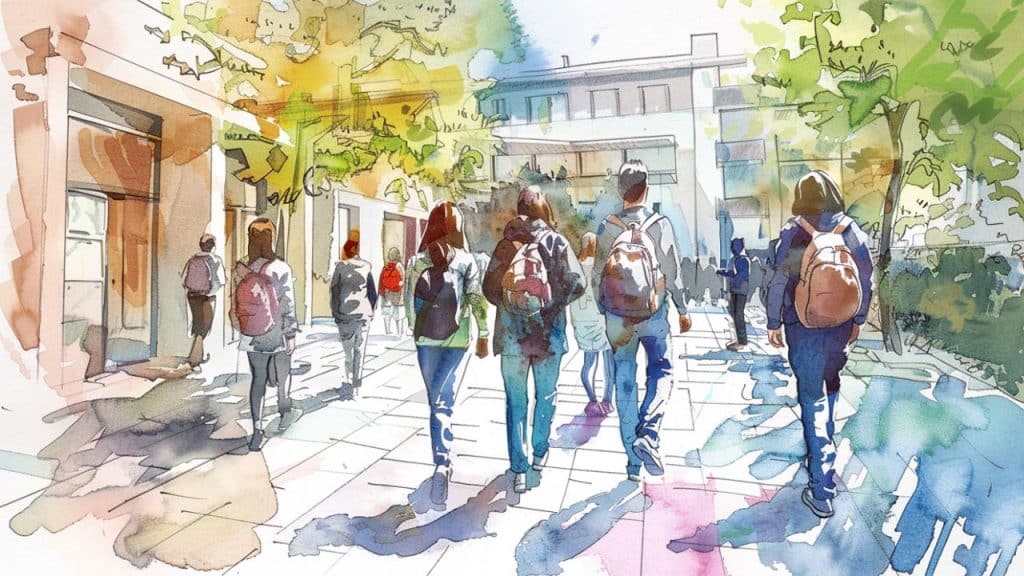“I still feel in limbo”

Students from the confiscated Jesuit university attempt to continue their studies in other universities but remain mired in uncertainty. Others say: “It was like losing my second home.”
HAVANA TIMES – “I’d have my psychology diploma today, but they snatched away that possibility,” laments Mariana, who used to study at Managua’s Central American University (UCA). One year ago, the dictatorship of Daniel Ortega and Rosario Murillo ordered the university closed and confiscated; on August 16, 2023 the university confirmed it had ceased operating. Since then, Mariana has gone through grief, rage, hopes and great uncertainty.
She recalls the pain she felt when she saw how they stripped off the letters above the university entrance to replace it with a new name: “Casimiro Sotelo Montenegro National University.”
Mariana only needed to finish one course and her thesis to finalize her career, which complemented her work in Human Resources for a manufacturing company. “It’s sad to see that they tried to leave me with no possibilities for studying,” she comments.
A few months ago, searching for a way to complete her studies, she attempted to register in the new university now controlled by the regime. However, they told her there was a problem, and they couldn’t accept her.
“The woman I talked to just gave me back my documents. I could hear her telling other students that she couldn’t register them, but she didn’t tell any of them why,” Mariana says.
Following the regime’s confiscation of the Managua UCA, the Jose Simeon Cañas Central American University in El Salvador and the Rafael Landivar Central American University in Guatemala, both Jesuit centers of higher education, offered the Nicaraguan students the opportunity to continue their studies, on condition they enroll for at least a year.
However, during the first semester this year the Psychology classes were only offered in person. “I couldn’t leave my job, and I felt frustrated,” the young woman comments, adding that she was even ready to enroll in another university in Nicaragua although it might mean starting all over again “in first-year.”
On July 20, Mariana began her first semester in the Rafael Landivar University, with online courses on Saturdays. Even though almost a year has passed without being able to study, she now has hopes of someday getting her diploma.
That diploma “doesn’t represent me”
Carolina was in the last semester of her career in the UCA when it was shuttered. Her thesis – which she was scheduled to defend in November 2023 – was in the last stage of review. The confiscation of the university provoked a mix of emotions in her – feelings that one year later she’s still not capable of describing. “Like the world had come down on my head,” was the closest she could come.
She rejected the possibility of continuing her studies in the “new” Casimiro Sotelo University, because, to her, doing so “was a betrayal of all the values I’d learned” in the Jesuit university. Her professors, however, made her reflect that it was “her best option” for obtaining her diploma in a short time.
“It would be unfair to leave five years of education and sacrifice in the air. Still worse would be wasting all the teaching and formation that the UCA gave us, oriented especially towards making a change in society,” Carolina emphasizes.
On January 15, 2024, Nicaragua’s National Council of Universities finally opened classes in the “new” university, following two failed attempts – first on August 28 and later on September 25 of 2023. The actual opening took place five months after the theft of the UCA campus. Returning students such as Carolina had lost one semester of classes.
The classes in Casimiro Sotelo were also not on a par with the confiscated UCA. They assigned Carolina an advisor for her thesis, which had already been written before the confiscation. The new advisor reviewed the document and told her to change some elements of the structure and to add in things that, in Carolina’s judgement, were “unnecessary”.
Carolina will finally receive a diploma from the Casimiro Sotelo Montenegro University. The idea causes her an internal conflict. She’s aware that the document will allow her to exercise her profession, at least in Nicaragua, but “I don’t feel identified with that diploma; it doesn’t represent me nor all the formation I received in the UCA,” she states.

The “Company of Jesus” order demands justice
The Ortega regime’s courts accused the UCA of “terro


